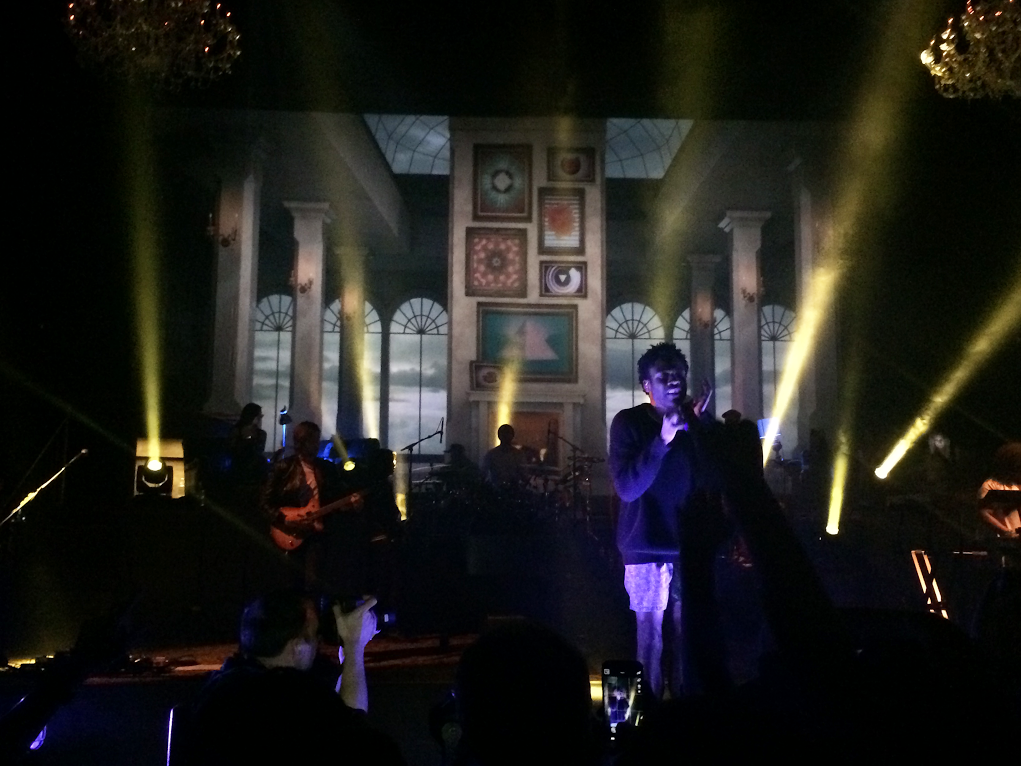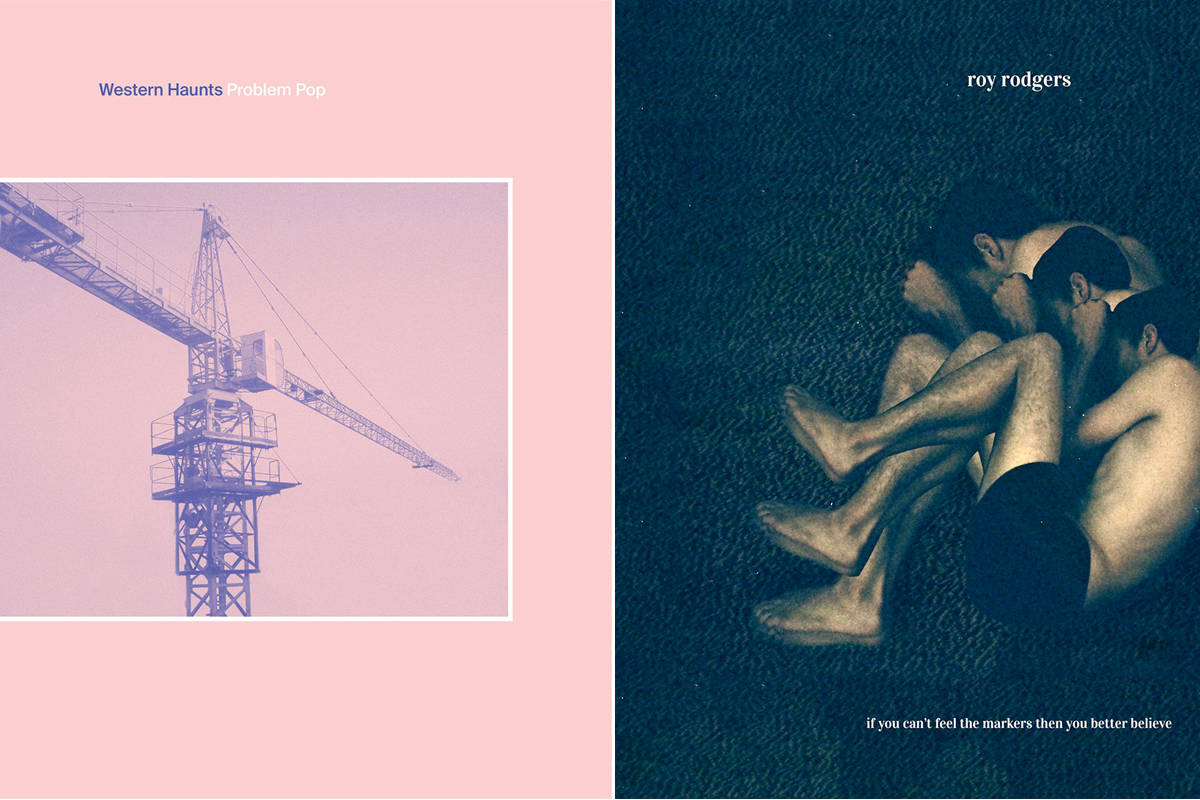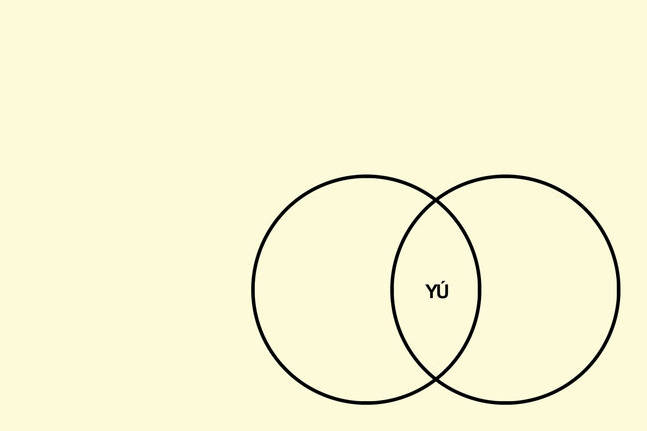Everyone is looking at their phones as Childish Gambino, the hip-hop moniker of Donald Glover, belts a stirring falsetto at The Paramount on Saturday night. Images of serene rainfall play on a mesh curtain, making the scene feel like it’s popping out from the stage, but most people are more concerned with the glow of their cellphones, myself included. Typically, this might seem disrespectful to the artist, but here it’s all playing into Gambino’s master plan.
To coincide with his current Deep Web Tour, Gambino released a mobile app to let fans interact with the show. As Gambino bares himself with soulful crooning, his spectators are answering a poll about how the song makes them feel, and the results then fly up on the screen in real time.
Gambino is steeped in the irony of disconnection that comes with social media. His latest album, Because The Internet, tells the story of a wealthy protagonist simply known as “The Kid” who is looking for fulfillment through snarky tweets and viral videos but still ends up feeling empty. But more than just a concept record, the album is one part screenplay and one part massive in-character social media campaign that deftly plays into the tour’s over arching themes.
Even though Gambino danced and bounced across the stage for the entire hour and a half performance, it was his entrancing visuals that proved most stunning. Projector images and chandeliers turned the stage into a mansion, the central place of action in the screenplay. Between songs the mansion glitches and exposes its glowing blue, Tron-like digital architecture, with each moving part just in place—including us.
I couldn’t help but draw parallels to Kanye West’s Yeezus tour. Despite not having a giant mountain and ruby encrusted masks, Gambino matches Yeezy’s conceptual vision without the budget. His fourth wall breaking and audience participation might even make the Deep Web Tour a more audacious undertaking.
During Stefan Ponce’s opening DJ set, the Deep Web app let the crowd chat and draw pictures that would appear on the screen. Yes, there were a lot of sloppily drawn penises, but the chat stream was really compelling: everyone was either a comedian or a troll. Some took the chance to berate the DJs, there was some mention of Kayne, and others referenced the screenplay’s intentionally nonsensical #roscoeswetsuit meme. I even found myself sending out snarky messages, and then came the first collective realization, “I don’t know why I’m doing this.” The second: “Gambino just played us.”
Before his set even started, Gambino was setting all of us up to be “The Kid”—and he didn’t even have to try that hard. But it was less a lesson about the evils of the Internet—his merch included t-shirts emblazoned with the mantra “Learn To Code”—and more about being self-aware. It was commentary about being connected with people standing next to you at a crowded concert, about digital walls combusting into nothingness. How an app on someone’s phone can open up the human experience but it can’t live there.
As Gambino encored with a set of older material from his first album Camp, my mind drifted over these ideas. I thought back to the beginning of the show when a teenager tried to make small talk with me, sharing his excitement about the new album and the screenplay. I don’t think I was rude–I made some effort to respond to his remarks cordially but didn’t extend the conversation from there. I was distracted, scrolling through my Instagram feed for the eighth time, viewing the same pictures I saw a few minutes ago. Searching #deepwebtour to see who else was there and who was having a good time. Maybe it would’ve made more sense to try and have a meaningful conversation with that kid. But I didn’t, Because the Internet.








